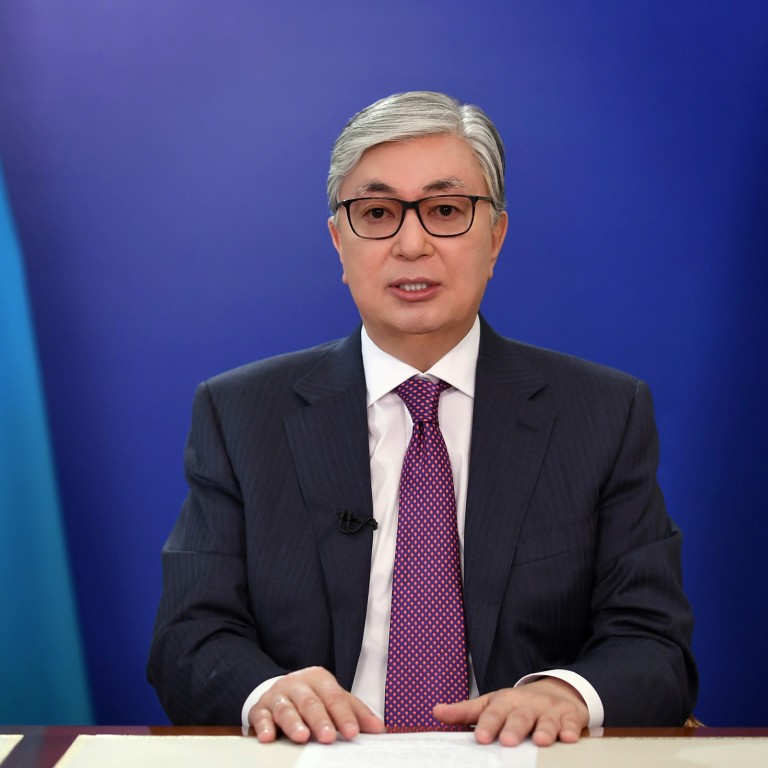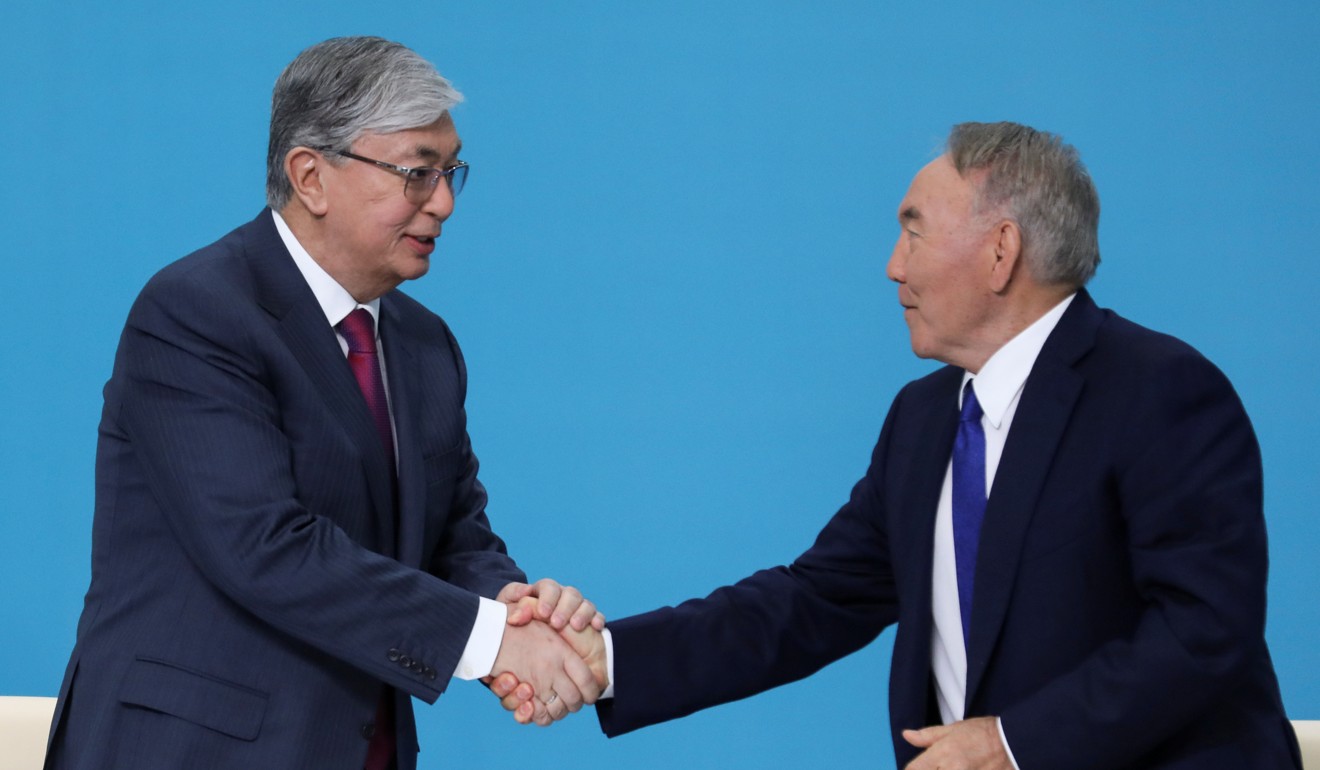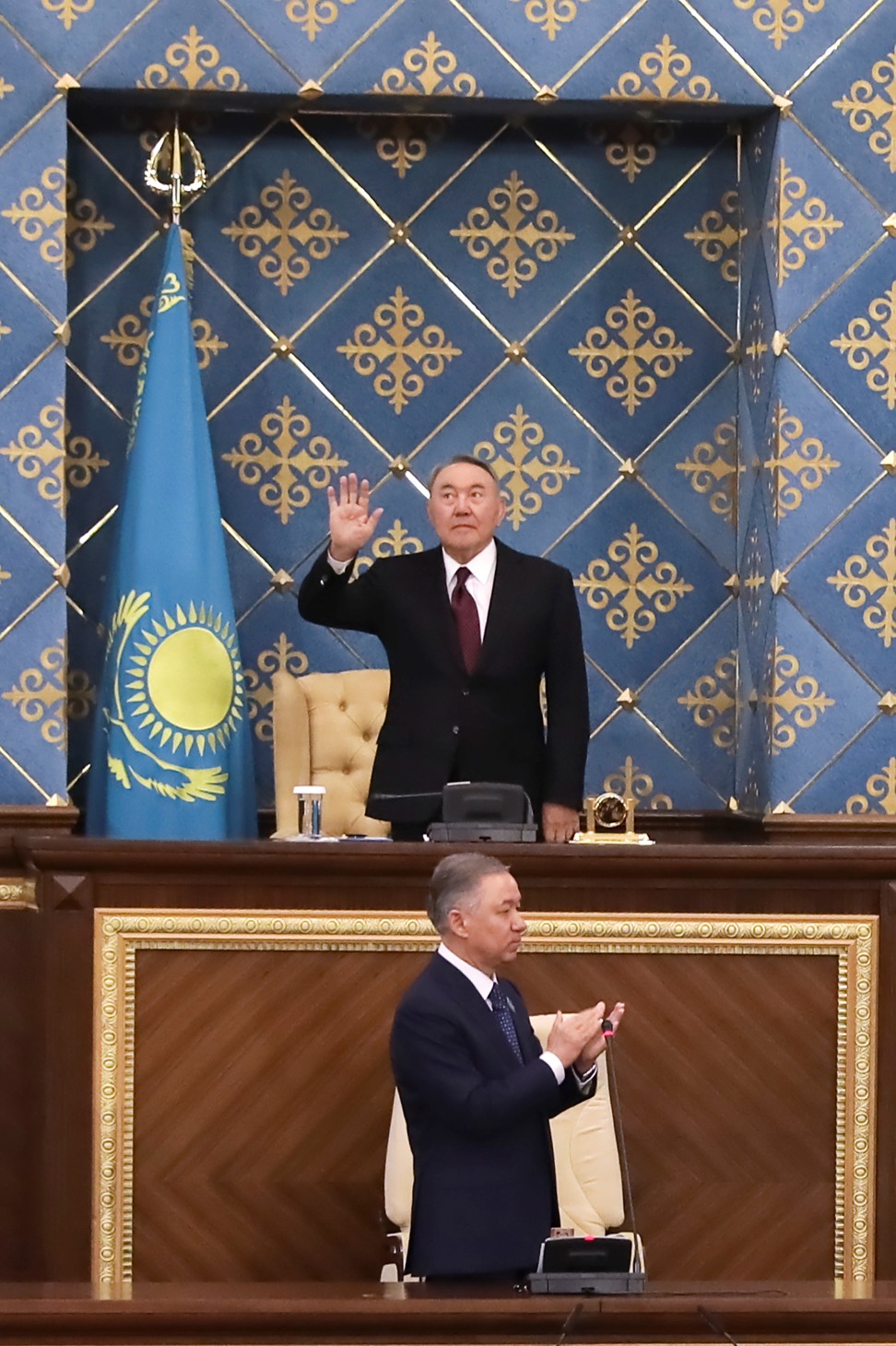
Kazakhstan’s acting leader nominated to run for president
- Move eliminates much of the uncertainty about Kazakhstan’s political transition plans
- Kassym-Jomart Tokayev virtually guaranteed of victory in June 9 snap presidential election
Kazakhstan’s ruling party nominated a loyalist to the country’s long-time leader as its presidential candidate on Tuesday, setting the stage for a smooth handover of power in the Central Asian nation.
Kassym-Jomart Tokayev took over as interim president last month following the shock resignation of Nursultan Nazarbayev, who had ruled the ex-Soviet nation for three decades.
Tokayev called a snap election for June 9 and on Tuesday delegates at a conference of the ruling Nur Otan party gave him unanimous backing as their candidate.
Tokayev, 65, is now all but certain to win the snap vote, marking a rare handover of power in a region where local leaders usually hold on to office until death.
A seamless transition will reassure foreign investors who have pumped money into Kazakhstan’s energy sector but frustrate those calling for democratic reforms in the authoritarian state.
Kazakhstan’s strongman of 30 years Nursultan Nazarbayev unexpectedly resigns, but will still wield considerable power
“I am going into the elections to continue the course of Elbasy … moving forward, without forgetting the past,” Tokayev said, using Nazarbayev’s Kazakh title of “Leader of the Nation”.
Nazarbayev had earlier guaranteed Tokayev’s nomination by proposing him as candidate.
“I ask everyone to support his candidacy,” Nazarbayev said at the conference in the capital Nur-Sultan, renamed from Astana in his honour following his resignation.

“I am sure he will be a worthy leader,” said Nazarbayev, who retains significant powers and said he would still play a role in shaping policy.
“People need stability and confidence in tomorrow. I will continue to work in the interests of the people of Kazakhstan.”
Nazarbayev, 78, shocked the oil-rich nation in March by calling time on his presidency and allowing Tokayev to succeed him, initially on an interim basis.
Nazarbayev remains the lifelong chair of Kazakhstan’s powerful security council and is constitutionally designated as “Elbasy”, or “Leader of the Nation”.
But Tokayev’s own public profile has been growing in recent weeks.

He has visited Moscow for talks with Russian leader Vladimir Putin, a close ally of Nazarbayev, as well as Uzbekistan, a key regional player.
On Monday he held talks with President Moon Jae-in of South Korea.
Tokayev’s trips around the country have been widely covered by local media that has little freedom from government censorship.
One popular website featured “rare” photographs from Tokayev’s youth in what appears to be an attempt to build support for an understated political figure.
But Kazakhstan’s regime faces a mood of simmering protest as it prepares for what is likely to be an uncompetitive vote in a country marked by deep inequalities.
Dozens of anti-government protesters were arrested in the days after Tokayev ascended to the presidency from the senate speaker post.

More recently, at a Sunday marathon event in Almaty, two protesters were arrested and sentenced to 15 days in detention for staging a protest against the government.
The banner they unfurled at the government-run race read: “You cannot run away from the truth. I have a choice”.
Photographs of the banner were widely shared on social media.
Kazakhstan has never held a vote deemed competitive by international monitors and the victory of the ruling party’s candidate is viewed as inevitable.
One likely challenger in the June vote, Mels Yelusizov, is famous for having cast his ballot for Nazarbayev, rather than himself, in a 2011 leadership contest the strongman won with 95 per cent of the vote.
His daughter, 55-year-old Dariga Nazarbayeva, was elected senate leader after Tokayev’s inauguration and is viewed as a potential successor to Nazarbayev in the long-term.

.png?itok=arIb17P0)